AAEON UP 4000 is a compact Apollo Lake single board computer that’s about the size of a business card or a Raspberry Pi designed for automation, robotics, digital signage, and other space-constrained applications that may benefit from an x86 processor.
The company already published some Phoronix benchmarks comparing the UP 4000 SBC against Raspberry Pi 4, NVIDIA Jetson Nano, and the original UP board, but since nothing beats third-party evaluation, AAEON sent a review sample to CNX Software for additional testing.
UP 4000 SBC unboxing
There are several variants of the board, and I received the UP-APL03X7F-A10-0464 SKU with 4GB RAM, 64GB eMMC flash, and an Intel Atom x7-E3950 quad-core processor.
The package includes the board together with a multilingual safety manual that explains you should not immerse the board underwater and should avoid walking on it :). A 12V/5A power supply was also included separately. The power cord was not included, but the power adapter just requires a standard 3-prong power cord, and I could borrow the one from my projector.
The top of the board comes with the eMMC flash, RAM chips, and a chip marked LCMXO2-640HC that happens to be a Lattice MachXO2 FPGA used for the I/Os on the board.
We also find all the standard ports and most of the headers there including three USB 3.2 ports, an HDMI port, a Gigabit Ethernet RJ45 jack, a USB 3.2 Type-C port, and the 12V DC jack, plus a 40-pin GPIO header, a UART wafer and an audio PFC connector on the top left.
The bottom of the board is fitted with a thick heatsink that covers almost the entirety of the board and reminds me of the AMD Ryzen-based DFI GHF51 SBC I reviewed a few years back. A tiny power button can be found on that side of the board too just above the power jack.
There’s also a 2-pin fan header (12V), a 10-pin wafer with 2x USB 2.0 and HSUART interfaces (that can be used for WiFi , Bluetooth, or add two USB Type-A ports) on the left side of the photo above, as well as a 4-pin wafer for an optional power button (right).
The CMOS battery is attached to the USB 3.2+HDMI combo connector through a dual-sided tape.
I took a photo of the UP 4000 together with Khadas Edge2 and Raspberry Pi 4 together with the larger Rock 5B pico-ITX SBC for size comparison. That’s great to have an x86 single board computer with the same size as other business card-sized boards based on Arm processors…
…but the heatsink required to make it fanless negates some of the advantages due to the extra thickness and weight, although to be fair the Rockchip RK3588(s) boards from Khadas and Radxa use a fan for cooling. But they should not require a 3cm thick heatsink for fanless operation even under load. Whether it matters or not all depends on the use case.
First boot with UP 4000 board
I connected the board to a USB keyboard, a USB mouse, Ethernet, and an HDMI display, before connecting the power supply to check the board can boot properly, and I was curious to find out which operating system was installed…
It turns out none, as I was greeted with an EFI shell. So I just grabbed a USB flash drive I have around with the Ubuntu 22.04 ISO, which I used to install the Linux operating system without issue while spending time writing this article.
I’ll check the UP 4000 board in more detail with Ubuntu 22.04 in the second part of the review. Since the processor has been around for a while, we’ve already reviewed Chuwi GBOX Pro mini PC with the Intel Atom x7-E3950 using both Windows 10 and Ubuntu 18.04 around 3 years ago.
I’d like to thank AAEON for sending the UP 4000 SBC for review. The model reviewed here is available for pre-order for $225.99 with the 12V/5A power supply on the UP shop.
Continue reading “UP 4000 x86 SBC review with Ubuntu 22.04“.

Jean-Luc started CNX Software in 2010 as a part-time endeavor, before quitting his job as a software engineering manager, and starting to write daily news, and reviews full time later in 2011.
Support CNX Software! Donate via cryptocurrencies, become a Patron on Patreon, or purchase goods on Amazon or Aliexpress. We also use affiliate links in articles to earn commissions if you make a purchase after clicking on those links.


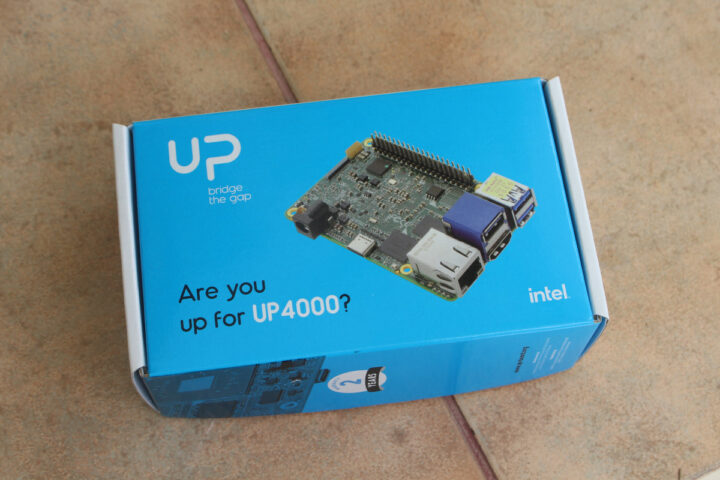
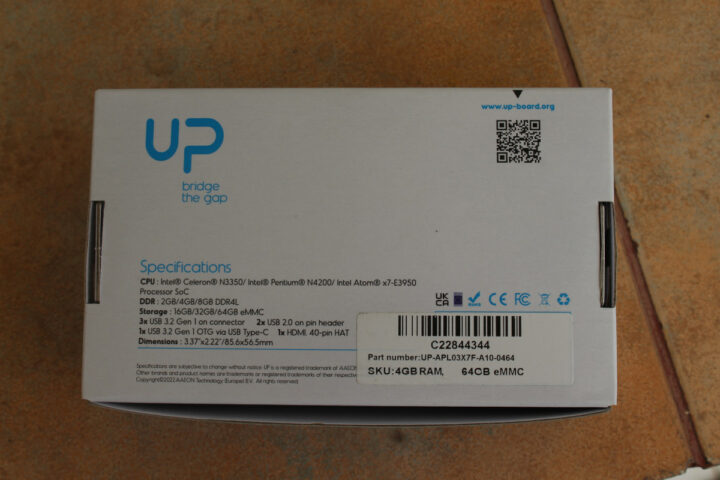
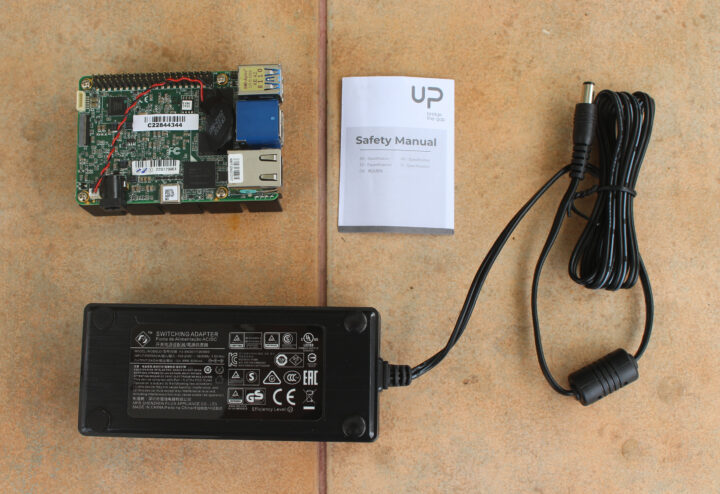
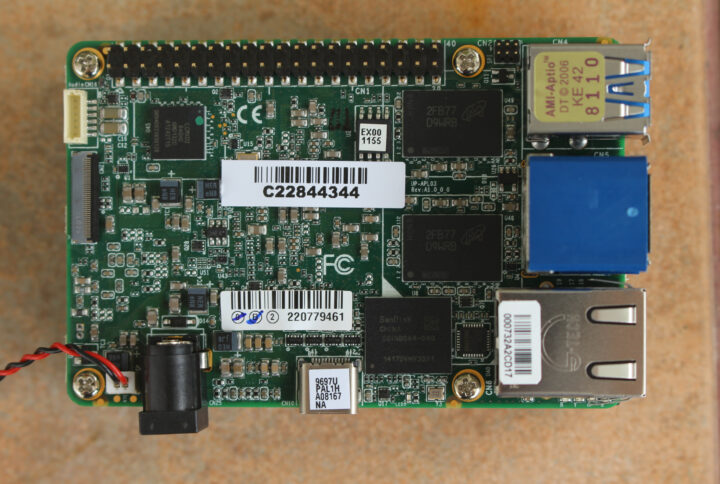
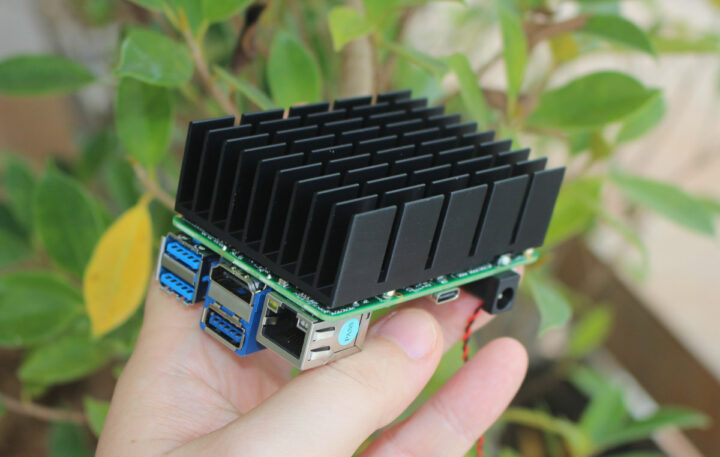
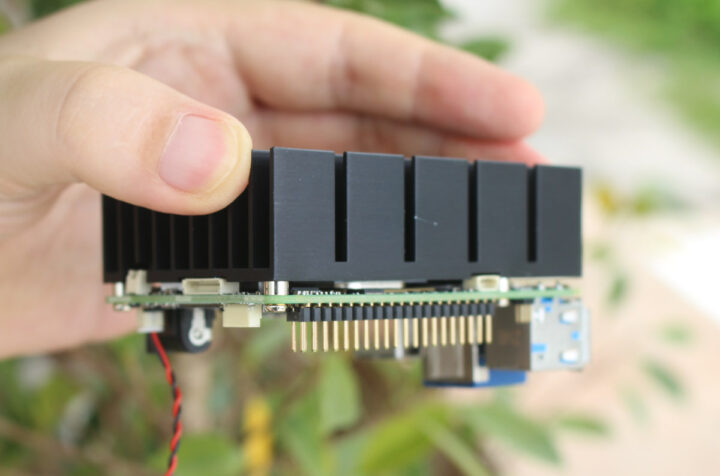
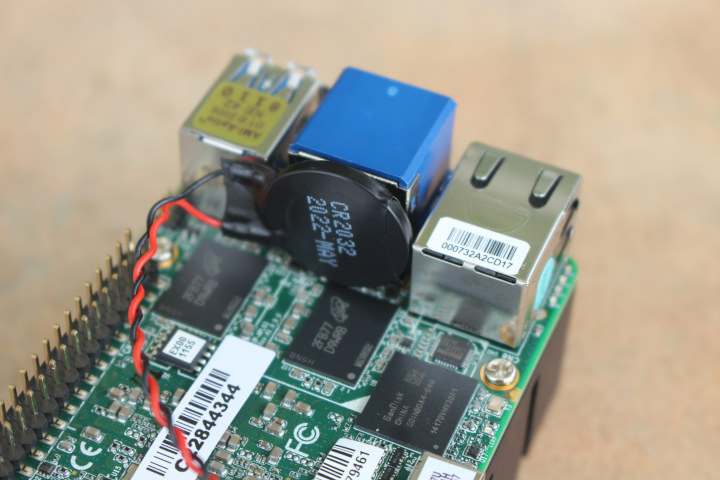
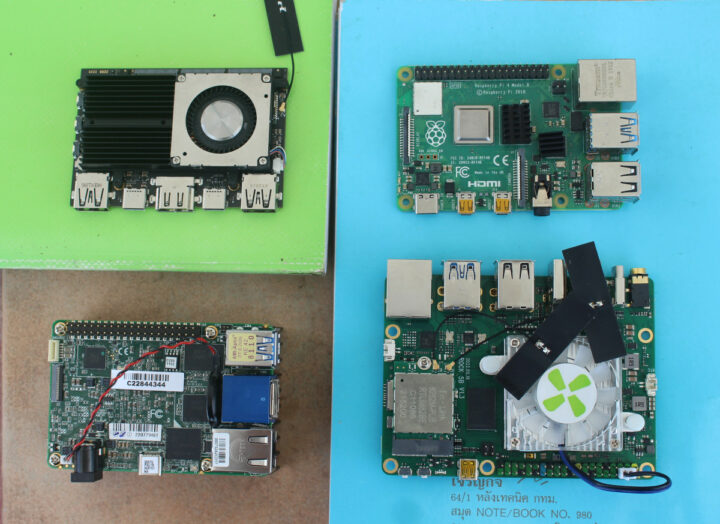
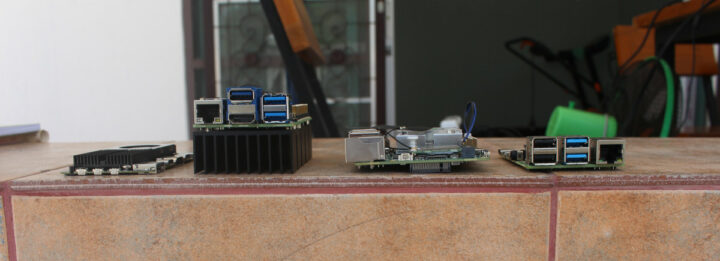
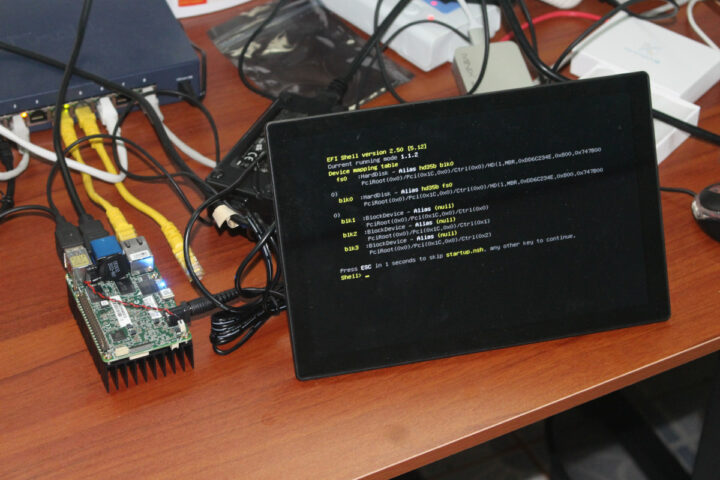
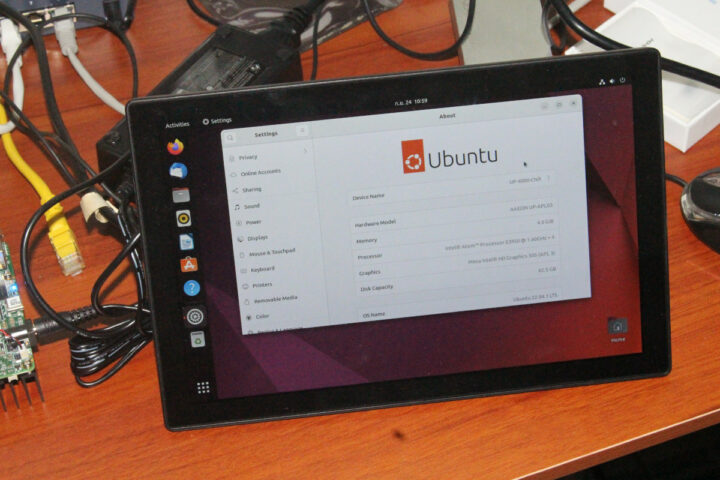


A 2016 SOC for $225.99. If it had the Apple label on it, their cult members would eat it up.
But back on planet normal, the more up to date I/O just doesn’t compensate for this price.
I just can’t see who would likely want this as opposed to other, more powerful boards out there for the same price or less.
> planet normal … I just can’t see who would likely want this as opposed to other, more powerful boards out there for the same price or less
Maybe since you’re living on ‘planet consumer/hobbyist’? For professional/commercial/industrial customers the HW costs are just one and rather small piece of the puzzle. They might ‘need’ Windows. Ever checked pricing of those few ARM boards that ship with a Linux SDK that does not suck?
If they really “need” Windows then they can just get an Atomic Pi for forty bucks and install Elektrohaxz’ excellent version made for it.
For consumers/hobbyists who need just a single or some x86 thingies, don’t care about bigger size, lower specs, warranty handling and don’t need to secure supply for the lifetime of their own product this is an excellent plan.
For professional/commercial/industrial customers all or most of this matters since they don’t have this board sitting on their desk playing Solitaire but integrate it into products.
Atomic Pi was not available during the last 2 years and now it’s listed in pre-order mode again. So hardly any competition with what’s hopefully to be available in reliable quantity.
What? They are freely available on Amazon in USA and have been for years. Maybe you are in a different country but there’s plenty available here.
For the same reason vortex86 CPUs are still around.
The reason people buy them is usually for am x86 device with an rpi compatible hat connector (but it doesn’t work right on at least the Elkhart lake ones). Otherwise they are unremarkable
The odyssey j4125 is a better choice for that purpose.
Yea, I don’t think this one’s meant for consumers.
The power supply is just killing all the meaning of it being small. That’s just not how it works, you put a power supply double the size of the sbc, and also put a heating which is the size of the sbc? That’s just nonsense.
The UP 4000 board shown here should be seen as an evaluation kit. Customers using this board could eventually come up with their own cooling solution (e.g. attached to a chassis doing the cooling) and power supply adapted to their specific use case.
The industrial edge systems it meant to be used most likely already have +12V rail available.
I think you are right, I haven’t thought about industrial usage, I was thinking about personal hobby use, which I’m doing. Also the article haven’t spoken about it either so it haven’t come in to my mind. Not the heating nor the power supply is a problem then of course.
What about Intel ME?
The up elkhart lake edge devices have significant unaddressed issues with SPI (bios updates don’t fix, this is the proper iotg kernel, etc). Cs0 on the hat connector just doesn’t work, and the SPI with cs1, when it works, dies if you open and close the device a few times. I’ve tried the devices, all exhibit the same behaviors (and I’ve verified it with logic analyzers, etc). The only reason (I know of) that people buy overpriced devices from them is for the rpi compatible HAT.
The up forums is just crickets on this and other issues.
I wouldn’t buy another device from them.
thanks, for this info !!
Look at that heatsink on a tiny board….😍
i feel weird…
🤔is there such thing as a heatsink porn?
I wish all SBC (especially raspberry pi) come with a huge heatsink from factory.
“But they should not require a 3cm thick fan for fanless operation”
You mean 3cm thick heatsink?
Thanks for the post on the UP 4000. Is the Heatshield bolted on, or glued on?
I don’t have the board with me right now, but the heatsink looks secured with four screws based on the photos. There may be some thermal paste as well.